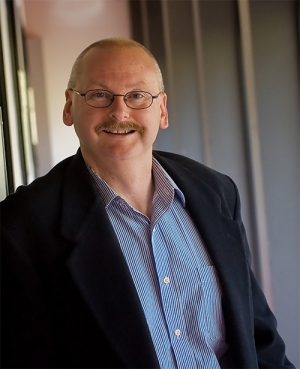C-PAN gathers forces in obesity battle
Research news
Alfred Deakin Professor David Crawford, Director of Deakin’s Centre for Physical Activity and Nutrition Research (C-PAN) is a man on a mission - to help Australians improve their health.
He has built up a world-leading team of over 50 researchers at C-PAN over the past twelve years that is influencing policy and practice around the world.
In recognition of his outstanding leadership, Alfred Deakin Professor Crawford has this week been announced as a Fellow of the highly prestigious Australian Academy of Health and Medical Sciences, of which the patron is pre-eminent scientist Sir Gustav Nossal.
Alfred Deakin Professor Michael Berk, Director of Deakin’s Strategic Research Centre for Innovation in Mental and Physical Health and Clinical Treatment (IMPACT), was also inducted as a Fellow with the Academy.
Professor Crawford said that he was delighted to receive the Fellowship and his prime motivation throughout his career has been finding the best ways to improve people’s lives.
“Lifestyle and dietary changes over the past 40-50 years have contributed to our current obesity epidemic and its escalating health consequences, such as heart disease, diabetes and cancer,” he said.
“Today, almost two out of three Australian adults are overweight or obese. This is having a huge national impact - affecting the quality of life of millions of individuals and their families, and increasing the nation’s health care costs, including treatments, hospital care and other support.”
While many of us know what constitutes a healthy diet or the health benefits of being physically active, Alfred Deakin Professor Crawford argues that there are barriers preventing us from following through with appropriate behaviour.
“People may be well intentioned, but modern lifestyles, confusion about healthy eating, long working hours, easy access to high energy foods, living in large cities and long commuting times; are all making it harder to access healthy foods or find time to be active,” he said.
C-PAN works closely with key agencies, including government departments, the Heart Foundation, Diabetes Australia and many others, providing a solid evidence base to inform policy directions.
Among hundreds of initiatives, C-PAN researchers have provided guidance for Australia’s physical activity and sedentary behaviour guidelines for children and youth, and developed a program for first-time parents on healthy eating and physical activity for infants that is being implemented through several local governments in Victoria.
Professor Crawford said that one achievement he is particularly proud of is having built up a world class team. He and three of his C-PAN colleagues were recently included in the annual listing of highly cited researchers by the prestigious ranking system, Thomson Reuters.
This listing marks a first for Deakin and puts the four amongst the top one per cent of researchers in their fields.
“C-PAN has a culture of excellence, of making a real difference and supporting others through ‘capacity building,’” Professor Crawford said.
“It is part of our DNA. In everything we do, we ask, ‘How can we support and develop less experienced researchers so they can play a role in the future?’ This mindset also attracts others with the same values.”
He noted that a key strategy of C-PAN has been combining the research areas of nutrition and physical activity, along with involvement from researchers from many other disciplines.
“We can’t solve complex health problems with just one type of expertise. At C-PAN we have built up a critical mass of social scientists, physiologists, dietitians, biochemists, epidemiologists, psychologists, geographers and others because we know we need a broad church of expertise to solve them,” he said.
Share this story
 Alfred Deakin Professor David Crawford, Director of C-PAN and new Fellow of the Australian Academy of Health and Medical Sciences.
Alfred Deakin Professor David Crawford, Director of C-PAN and new Fellow of the Australian Academy of Health and Medical Sciences.
